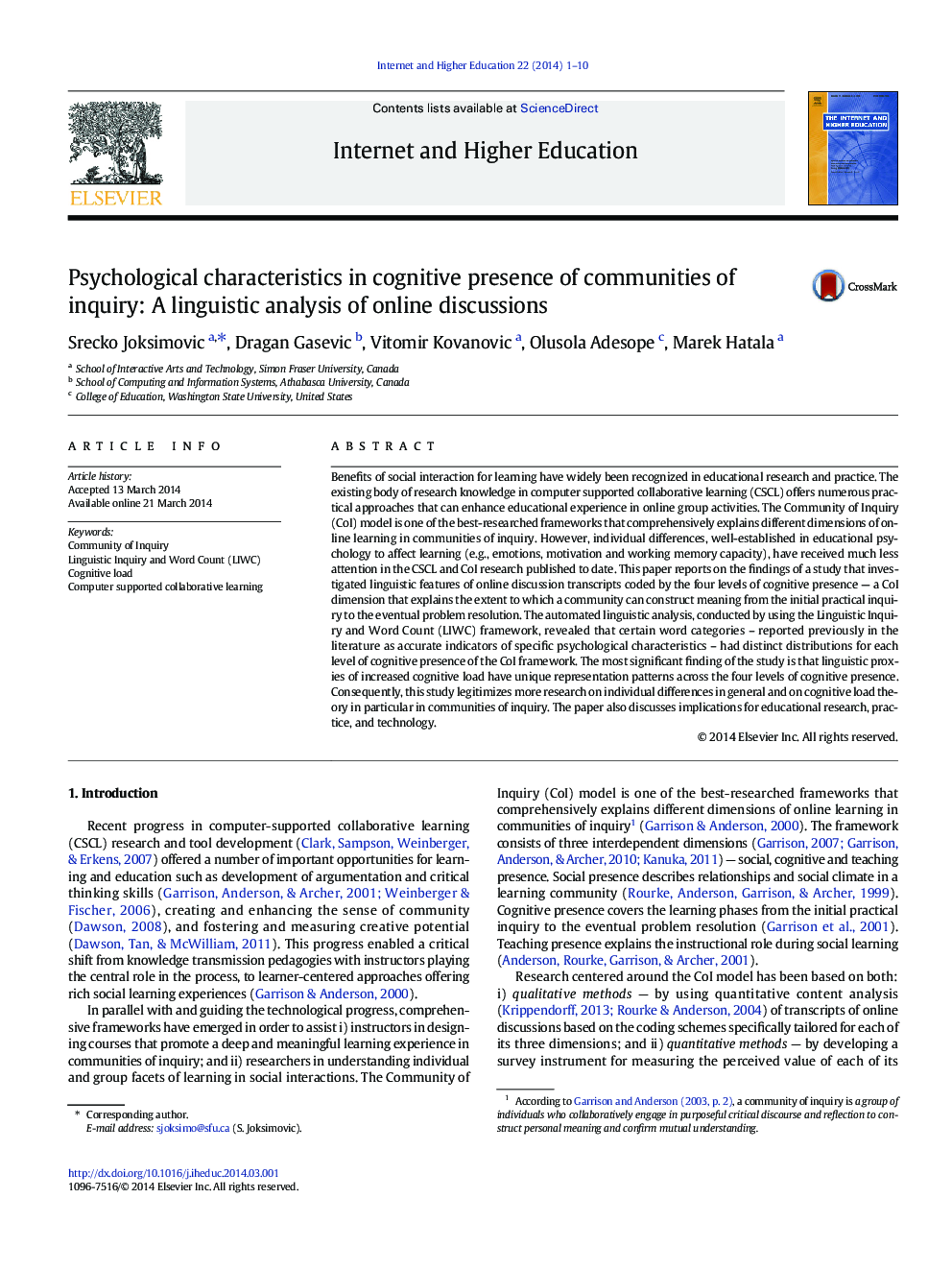| کد مقاله | کد نشریه | سال انتشار | مقاله انگلیسی | نسخه تمام متن |
|---|---|---|---|---|
| 357707 | 619942 | 2014 | 10 صفحه PDF | دانلود رایگان |
• The study investigated linguistic features of online discussion transcripts.
• Messages are coded according to the four levels of cognitive presence of CoI.
• Certain psychological categories of words had distinct distributions for each level.
• The results of the LIWC-based analysis offer distinct proxies of cognitive presence.
• Findings suggest a need for practice and research of adaptive instructional designs.
Benefits of social interaction for learning have widely been recognized in educational research and practice. The existing body of research knowledge in computer supported collaborative learning (CSCL) offers numerous practical approaches that can enhance educational experience in online group activities. The Community of Inquiry (CoI) model is one of the best-researched frameworks that comprehensively explains different dimensions of online learning in communities of inquiry. However, individual differences, well-established in educational psychology to affect learning (e.g., emotions, motivation and working memory capacity), have received much less attention in the CSCL and CoI research published to date. This paper reports on the findings of a study that investigated linguistic features of online discussion transcripts coded by the four levels of cognitive presence — a CoI dimension that explains the extent to which a community can construct meaning from the initial practical inquiry to the eventual problem resolution. The automated linguistic analysis, conducted by using the Linguistic Inquiry and Word Count (LIWC) framework, revealed that certain word categories – reported previously in the literature as accurate indicators of specific psychological characteristics – had distinct distributions for each level of cognitive presence of the CoI framework. The most significant finding of the study is that linguistic proxies of increased cognitive load have unique representation patterns across the four levels of cognitive presence. Consequently, this study legitimizes more research on individual differences in general and on cognitive load theory in particular in communities of inquiry. The paper also discusses implications for educational research, practice, and technology.
Journal: The Internet and Higher Education - Volume 22, July 2014, Pages 1–10
